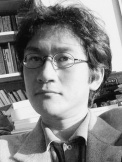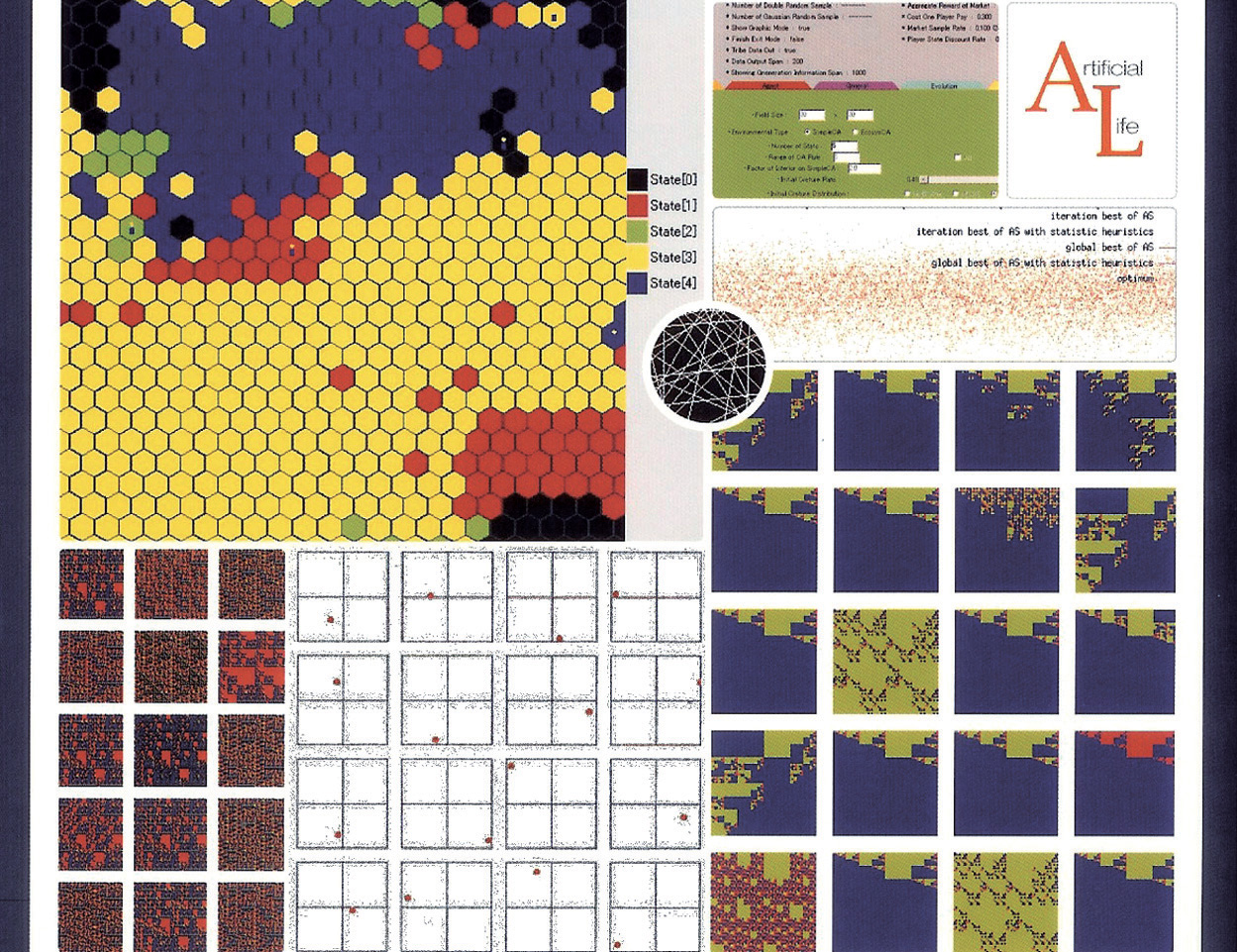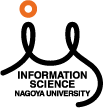Comprehensive List of Researchers "Information Knowledge"
Department of Complex Systems Science
- Name
- ARITA, Takaya
- Group
- Emergent Systems Group
- Title
- Professor
- Degree
- Dr. of Engineering
- Research Field
- Artificial Life / Complex systems science / Evolutionary psychology

Current Research
Artificial Life : An Approach towards the Origin/Evolution of Life and Sociality
Science, in general, seeks to discover simple regularity and order in complicated systems, and thus it treats complexity as something to remove. In contrast, complex systems science, a cutting-edge field that has emerged over the past decade, seeks to unravel complexity itself. The emergence of complex systems science reflects the gradual reframing of challenging problems to the paradigm of complex systems. The big picture of science and the relationships between acquired knowledge are becoming increasingly ambiguous, while the proliferation of intelligence has rapidly expanded in all fields of modern science. Complex systems science is moving toward a unified understanding of complex systems such as life, society, economy, language and culture at abstract and conceptual levels.The most fundamental meaning of the term "complex system" is a system whose inherent complexity is generated by the nonlinear interactions among its elements ; in other words, a system whose whole is more than simply the sum of its elements. Predicting the behavior of such a system is very difficult because the behavior resulting from nonlinear interactions also affects the interactions and elements themselves. Such micro-macro loops are thus a fundamental source of complexity. Typical phenomena deeply linked to complex systems include emergence, self-organization, and evolution, and these are central issues in complex systems science. Among these, emergence is the most distinguishing feature of complex systems, and it has been investigated in research on complex systems, especially in the field of artificial life.
With this understanding of the field and its potential, we, the members of the Artificial Life Laboratory, are conducting research in complex systems science from various perspectives. The research in our laboratory typically consists of these phases : construction of a computational model, implementation in computers or robots, observation/analysis of the emergent phenomena, and examination in engineering applications.
Our current research topics are as follows :
・Evolutionary Dynamics : Origin of Life
・Evolutionary Dynamics : Interaction between Evolution and Learning
・Evolutionary Dynamics : Roles of Development
・Evolutionary Dynamics : Niche Construction
・Evolutionary Dynamics : Interactions between Genes and Memes
・Evolutionary Dynamics : Sexual and Natural Selection
・Evolutionary Dynamics : Evolution of Complex Networks
・Origin of Humans : Evolution of Languages
・Origin of Humans : Evolution of Cooperation
・Origin of Humans : Adaptivity of Misperception
・Origin of Humans : Informational Diversity and Collective Behavior
・Origin of Humans : Origin of the Theory of Mind
・Artificial Ecosystems
・Computational Methods based on Artificial Life
・Robotics based on Artificial Life
・Evolution and Creativity
Various materials, including many on-line papers, can be obtained from our web site : www.alife.cs.is.nagoya-u.ac.jp/index.php. Also, feel free to contact us by E-mail : arita@nagoya-u.jp.

Figure : Conceptual image of complex systems simulations.
Career
- T. Arita received the Dr. of Eng. degree from Univ. of Tokyo in 1988.
- He was a research associate from 1988 to 1993 and a lecturer from 1993 to 1994 at Nagoya Institute of Technology. He was an associate professor in the School of Informatics and Science from 1994 to 1998 and in the Graduate School of Human Informatics from 1998 to 2003 in Nagoya Univ. During the 1995-96 year, he was a visiting scholar at UCLA.
- Since 2003, he has been a professor in the Graduate School of Information Science, Nagoya Univ.
Academic Societies
- Japanese Society for Artificial Intelligence
- Japanese Cognitive Science Society
- Information Processing Society of Japan
- Institute of Electronics
- International Society of Artificial Life
Publications
- A Constructive Approach to the Evolution of the Recursion Level in a Theory of Mind, Cognitive Studies, Vol. 12, No. 3, pp. 221-233, 2005.
- Cyclic Coevolution of Cooperative Behaviors and Network Structures, Physical Review E, 77(2), 021911 (7 pages), 2008.
- Can the Human Mind be Modeled by a Computer Program?, Softbank Creative, 2007.
- From living things to living beings, Chikumashobo, 2012.








